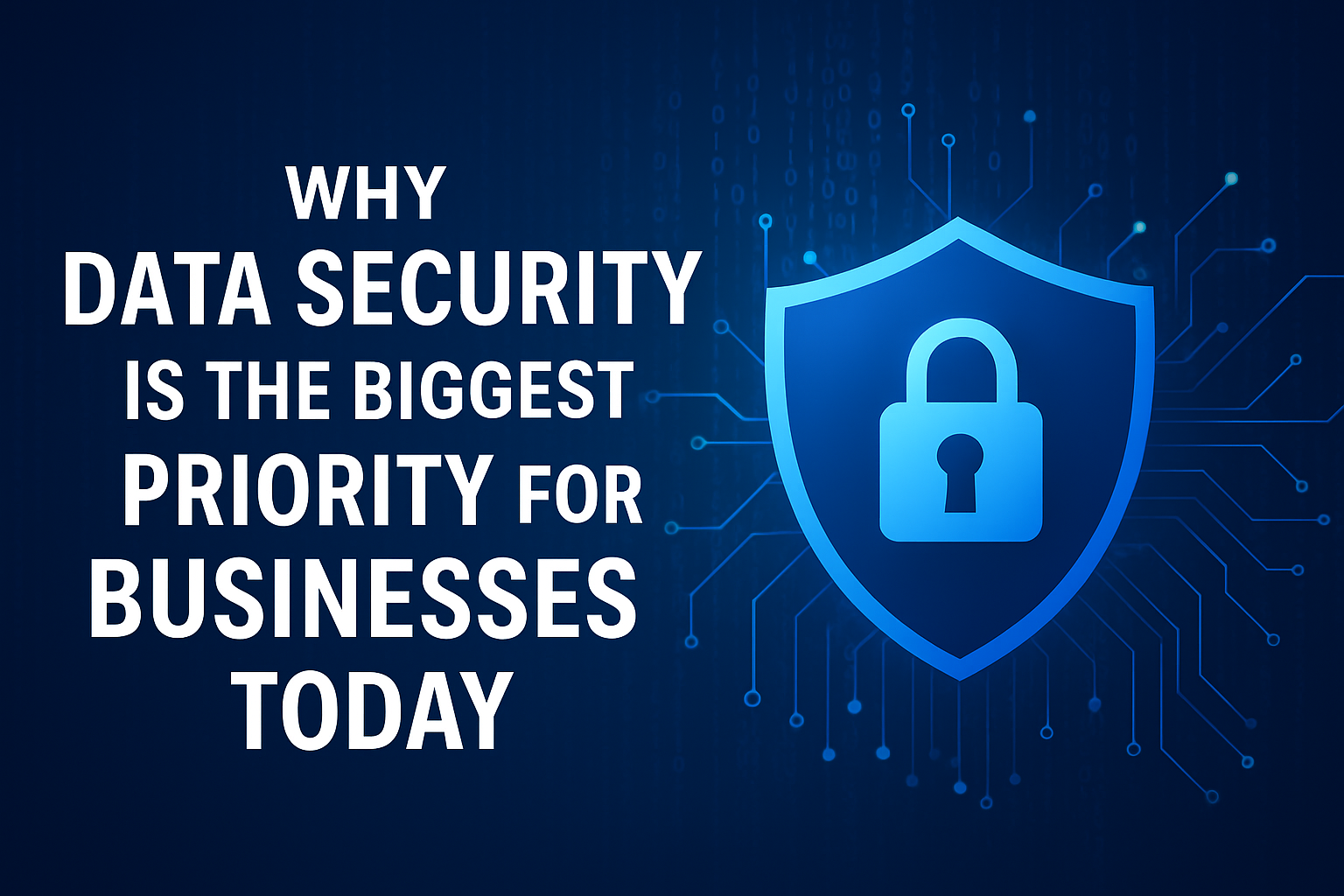Why Data Security Is the Biggest Priority for Businesses Today
In today’s digital-first economy, businesses handle enormous amounts of sensitive information every single day. From customer details to financial records and intellectual property, data has become the lifeblood of modern organizations. But with rising cyber threats, stricter compliance laws, and the ever-growing risk of breaches, one thing is clear: data security is no longer optional — it is the biggest priority for businesses today.
Rising Cyber Threats in the Digital Era
Cybercrime is increasing at an alarming rate. Hackers are becoming more sophisticated, and businesses of all sizes — from startups to multinational corporations — are potential targets. Common threats such as ransomware, phishing, and insider attacks can cripple operations overnight.
A single data breach not only causes financial losses but can also destroy a company’s reputation. According to industry reports, the global average cost of a data breach now runs into millions. This is why organizations are prioritizing stronger firewalls, multi-factor authentication, and employee awareness training.
Protecting Customer Trust and Brand Reputation
Trust is the foundation of every business relationship. Customers expect companies to protect their personal and financial data at all times. A breach not only compromises sensitive details but also erodes customer loyalty.
When consumers feel secure, they are more likely to engage, share information, and make repeat purchases. On the other hand, one security lapse can take years to repair in terms of brand reputation. By investing in data protection strategies, businesses are essentially investing in long-term trust and credibility.
Regulatory Compliance and Legal Responsibilities
Another critical reason why data security is the biggest priority for businesses today is the tightening of global compliance regulations. Frameworks such as GDPR in Europe, CCPA in California, and other data privacy laws demand strict adherence to security measures.
Failure to comply can lead to heavy fines, legal action, and severe reputational damage. Businesses that proactively secure their data not only avoid penalties but also demonstrate their commitment to ethical practices.
Safeguarding Business Continuity
Data is more than just information — it is the backbone of day-to-day operations. Losing access to it, whether due to cyberattacks, system failures, or natural disasters, can halt productivity instantly. Robust security protocols ensure uninterrupted business continuity by safeguarding backups, enabling disaster recovery, and minimizing downtime.
In highly competitive markets, the ability to continue operating without disruption is a major advantage. Companies that prioritize security gain resilience and stability, ensuring they can withstand unexpected challenges.
The Competitive Edge of Data Security
Beyond risk prevention, strong data security also provides a competitive edge. Businesses that openly showcase their commitment to security can differentiate themselves in crowded markets. Prospective clients, investors, and partners view data protection as a mark of professionalism and reliability.
By integrating advanced encryption, cloud security solutions, and regular audits, companies position themselves as future-ready leaders. This is not just about defense — it is about driving growth and standing out in a data-driven world.
Final Thoughts
It is clear why data security is the biggest priority for businesses today. Rising cyber threats, customer expectations, regulatory requirements, and the need for operational continuity all make data protection essential. Companies that ignore this reality put themselves at serious risk, while those that act decisively build trust, safeguard growth, and secure long-term success.
In the modern business landscape, strong data security is not just an IT concern — it is a strategic necessity.






